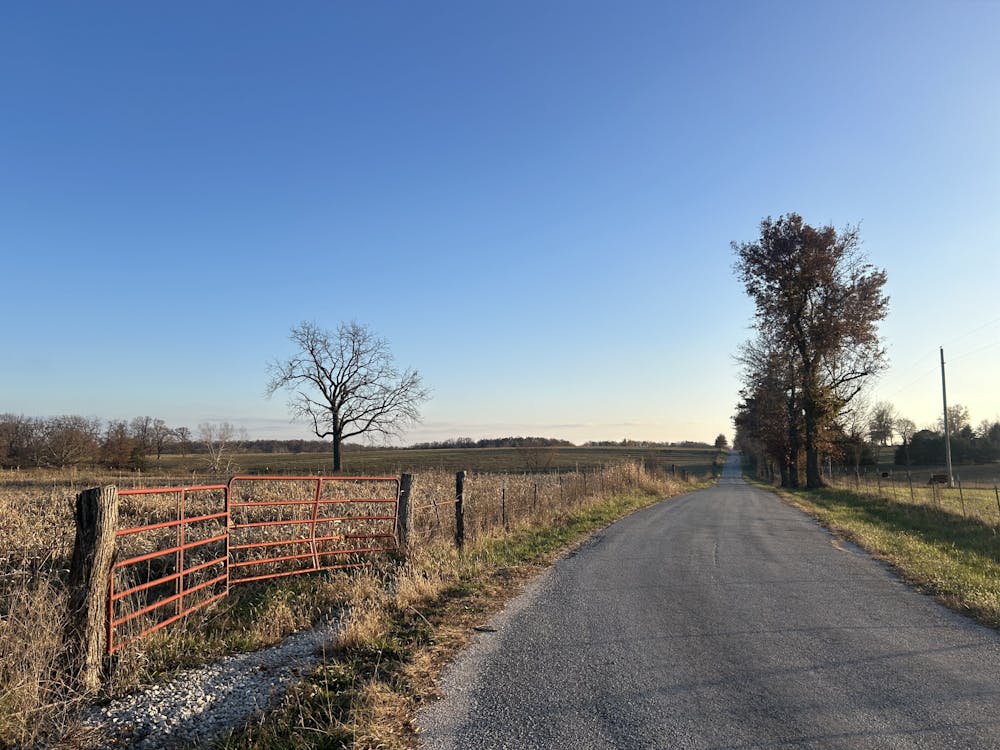
Like a horse with a broken leg, I have come to face my own death sentence: I am a poet uncomfortable unpacking emotion.
The diagnosis reached me in an audio comment left under the piece I submitted for my poetry class. My professor spoke gently, as if I were a feral kitten he was rescuing, in the way that all creative writing professors yet somehow no doctors do. As he delivered his critique, I knew it to be true: I understand the occasion of this poem, but what is it really about?
What did me in was this peacock poem. In my dad’s rural hometown in southwest Missouri, where we visit my grandmother to this day, there were peacocks. To everyone who lived in this town — and even those like myself who visited frequently enough — they were so common as to lose their novelty and become a plain nuisance, like toddlers in a daycare. Pretty privilege corrupts. Like a coy, insincere apology, the peacocks fanned their perfect tail feathers while they pecked the paint off car doors and harassed clients at the senior care facility. Something must be done, the city decided.
The humane mass exodus of the town’s once-familiar feral peacocks into privately owned pets went undetected, at least by me. In the times I visited my grandmother since their removal, I never registered their absence.
I want to say something smart about how, when something so constant suddenly disappears, it’s the same as if it were still there — how the mind slips on an overcoat to protect itself from the truth’s pelting rain. When we don’t see the sun, we know it must be behind the clouds. Then again, my chief concern when visiting my grandmother’s town — after seeing her, of course — was if we would go to my favorite Chinese buffet, so my mind was hardly primed for peacock peeping.
Only this past summer, the day following the Fourth of July when the gunpowder crouched to a morning-after smell, did I visit the park that the peacocks called headquarters and notice they were missing. When had that happened?
As I swung myself on a swing set, I recalled the peacocks with an emotion some other language probably has a better word for, but which English claims is “bittersweet” and says good enough. Half awe, half dread — the feeling that tells you, if you could live past moments again, you would do them better this time. The swings cried under the weight of my 19-year-old body.
Like unsuspecting subjects of a flash photograph in a dark room, none of these details came out right in the poem. They were caught in all their worst angles: beady red eyes, slouched spines and mouths half-open in unsmiling ways. What I wrote was an ugly portrait, and all because I cannot be honest with myself when writing a poem.
The thing is, I have an easier time being honest without the plausible deniability of poetry. If The News-Letter editors and my well-meaning family would allow, I would have no issue publishing my social security number and every last secret in a Voices column.
My real hometown — not just the nearest name-brand city — is featured unflinchingly at the bottom of this article. When it comes to writing about my grandmother’s town in a poem only my professor will read, however, I get shy. Quoting a news article as my poem’s epigraph, I omit the name, writing “City of _______” instead. Sidestepping the issue of naming the park in my poem, I bend its themes to fit the fallibility of memory so I can write “Something Memorial Park” rather than dox the park I went to as a child.
I don’t know why I’m a cagey poet but an over-sharing journalist. The easy answer is to blame it on my parents: my dad, a stoic Southern Baptist creative writer; my mom, a caricatured Catholic journalist. My grandmother’s town has — had — a peacock problem, and I have, present tense, a poet’s problem.
In keeping with my persona as an over-sharing journalist, I should mention: I’m writing this article over a week after my deadline. Ignoring the onslaught of other obligations that mostly account for my tardiness, there lurks a different truth: I knew this was the topic I wanted to cover, but I was once more gummed up when it came time to confront even the relatively mild emotions of a few dozen missing peacocks in a place I don’t even live.
A thesis at the end is just bad writing, but I hope to be excused. Here goes an honest attempt at an attempt to be honest.
Those peacocks — bright, beautiful creatures in the armpit of Missouri — spoke to a kind of magic that I wanted to believe could grace places where little else is going well. I wanted to believe that goodness was always somewhere to be found if only you reached out, and uniquely so in places that need it the most.
Do I have to spell out, then, what it meant for the peacocks to be pulled away?
Riley Strait is a sophomore from Olathe, Kan. studying Writing Seminars and English. He is an Arts & Entertainment Editor for The News-Letter. His column, "In Medias Res," translates from Latin to "into the middle of things," shares narratives that bury occasional insights within fluff that often leave the reader wondering, "Did I ask?"





